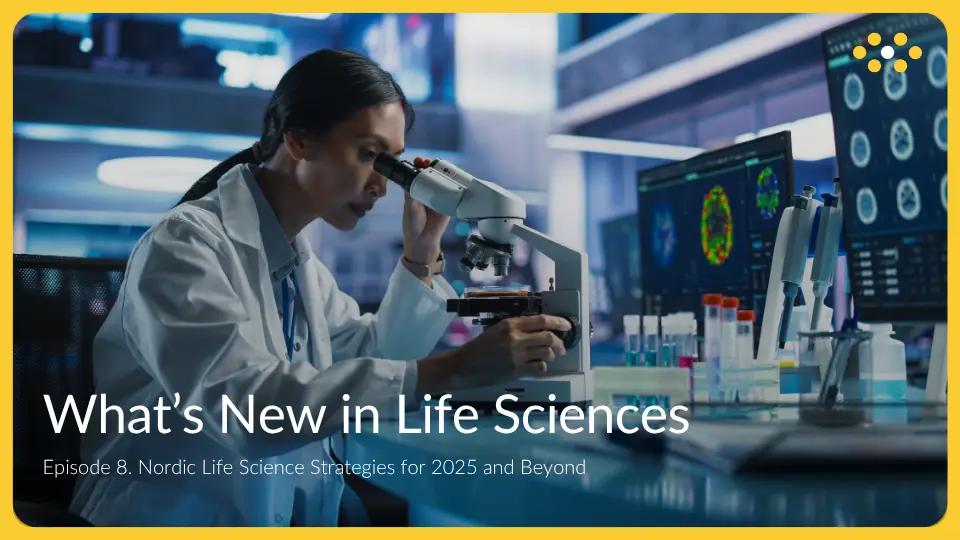The pharmaceutical industry is a highly profitable sector with a revenue of 1.6 trillion dollars in 2023. In 2023 alone, the Center for Drug Evaluation and Research (CDER) approved 55 novel drugs, following a remarkable 60 in 2018. But how do we ensure the safety and approval of these medications?
Quality Assurance (QA) and Quality Control (QC) are integral processes in guaranteeing both consumers and clients the quality of a product. Digitalisation has stepped up as a game-changer in pharmaceuticals, enabling companies to streamline processes, enhance efficiency, and improve decision-making. That’s why every year new technologies are being developed to help businesses grow, innovate, and improve their products.
In this article you will read about the digitalisation of pharmaceutical QA and QC, the evolving landscape of career opportunities in this field, and the role of recruitment companies in connecting businesses with top talent.
The Difference between QA and QC
QA in the pharmaceutical industry includes a set of processes and systems designed to ensure medications meet quality standards, regulatory requirements, and specifications. It involves establishing standards, guidelines, and procedures to prevent quality issues and maintain product integrity throughout development. In other words, QA is the planning and prevention phase.
QA ensures medicines are free from deviations or defects by implementing processes, executing risk assessments, and developing better methods. By upholding quality assurance principles, pharmaceutical companies strive to safeguard patient safety, maintain product efficacy, and uphold their reputation in the marketplace.
On the other hand, QC executes the well-thought processes of quality assurance by monitoring and controlling the processes, or, in other words, the testing phase.
How Digitalisation Impacts QA and QC
Data Analytics and Predictive Modelling
QA focuses on preventing defaults and reducing risks to a minimum, making data analytics and predictive modelling key to enhancing product quality. By collecting and analysing data from various sources such as customer feedback or code repositories, scientists can identify trends, detect anomalies, and anticipate quality issues before they arise. As a result, Predictive analytics provide optimal test strategies, resources, and priorities because of data analysis.
While data analytics and predictive modelling offer multiple advantages such as cost reduction and increased efficiency, implementing this technology presents some challenges. Firstly, complex and large data require the right equipment. Secondly, data privacy is crucial to avoid reputation and financial damage. And lastly, skilled people are also necessary for data analysis and modelling. But, with the right people and set-up this technology will take your company to the next level in QA and QC.
Automation
Robotic Process Automation (RPA) has developed a lot in recent years with a worth of almost 3 million dollars in 2023 and will have an annual growth rate (CAGR) of 39.9% from 2023 to 2030. The pharmaceutical industry can benefit from RPA, tackling some major challenges, such as talent shortage, inflation and regulatory changes. RPA enhances efficiency, accuracy, and compliance in pharmaceutical QA/QC processes by automating repetitive tasks, enabling professionals to focus on critical decision-making and continuous improvement.
Quality Assurance (QA)
RPA bots meticulously review batch records, ensuring compliance with standard operating procedures (SOPs) and regulatory guidelines. They cross-check data, identify discrepancies, and flag anomalies. RPA analyses data from various sources (e.g. adverse events, deviations) to assess risks, aiding in early identification of potential quality issues and timely corrective actions. It automates the creation and maintenance of audit trails, capturing every action taken during manufacturing, testing, and distribution. As a result, RPA enhances traceability, and facilitates regulatory audits. RPA also assists in managing document workflows, version control, and approvals, ensuring accessibility to authorized personnel and minimising errors and delays.
Quality Control (QC)
RPA can execute routine laboratory tests such as dissolution testing, content uniformity, and stability studies, which reduces human error and accelerates sample analysis. Automating data verification by comparing results across different systems (e.g. LIMS, chromatography software) ensures data integrity, with any discrepancies triggering alerts for further investigation.
Another benefit of RPA is that it schedules and tracks equipment calibration, preventive maintenance, and validation activities, ensuring instruments operate within specified parameters. The tools monitor compliance with specifications, limits, and acceptance criteria, and flag deviations and out-of-specification results promptly.
IoT in QC
IoT-enabled devices automate sample collection, preparation, and testing, with automated microbial testing systems reducing manual intervention and improving accuracy. Besides automating sample processes, IoT facilitates paperless workflows by digitizing records, test results, and compliance documentation, streamlining data management and ensuring traceability.
IoT-driven QC processes enable real-time product release. By monitoring critical parameters during manufacturing, companies can release batches faster without compromising safety. Lastly, IoT analytics help prioritise testing based on risk assessments. For example, High-risk areas receive more attention, optimising resource allocation.
Agile and DevOps Integration in QA
Agile and DevOps are complementary methodologies that aim to enhance software development and delivery. Agile enables companies to enhance their QA/QC through iterative processes by breaking down projects into phases and repeating specific procedures for continuous improvement, such as early and frequent testing. DevOps further bridges the gap between development and operations by facilitating collaboration and communication, ultimately leading to the automation and streamlining of the software delivery pipeline.
Agile
Agile stimulates continuous testing and test automation across the development lifecycle to ensure reliable testing. This is why QA teams closely collaborate with developers, product owners, and stakeholders to establish acceptance criteria and develop test cases. In QC, automated testing tools validate functionality, security, and performance. To improve test cases, criteria, and results, frequent iterations (sprints) are conducted during the development phase to detect defects early on.
DevOps
DevOps practices promote shift-left testing, whereby testing takes place early in the development process. Through feedback loops, QA teams gather insights for enhancing tests. Another key aspect of DevOps is the collaboration between QA engineers and developers to guarantee code quality, security, and performance. Additionally, QA closely cooperates with QC to ensure the delivery of high-quality outputs. Further DevOps practices include Continuous Integration (CI) and Continuous Deployment (CD) pipelines, which automate testing, deployment, and monitoring processes. Finally, Infrastructure as Code (IaC) ensures uniform environments for both testing and production, with quality gates in the pipeline preventing faulty code from reaching production.
Blockchain Technology
Blockchain technology has emerged as a promising tool in the field of QA/QC within the pharmaceutical industry. By leveraging blockchain, pharmaceutical companies can enhance transparency, traceability, and data integrity throughout the entire supply chain. With immutable and decentralised ledgers, blockchain enables the secure recording of every transaction and event, from the sourcing of raw materials to the distribution of finished products. This technology offers a reliable means of verifying the authenticity of pharmaceutical products, preventing counterfeit drugs from entering the market.
Additionally, blockchain can streamline the process of tracking and managing batch records, ensuring compliance with regulatory requirements such as Good Manufacturing Practices (GMP), and providing auditors with real-time access to critical data. Overall, the implementation of blockchain in QA/QC in pharmaceuticals holds the potential to revolutionise the industry by promoting trust, efficiency, and safety in the production and distribution of medications.
Career Paths in Pharmaceutical QA/QC
The digitalisation of pharmaceutical QA/QC has opened up a diverse range of career opportunities for professionals with various backgrounds and skill sets. The pharmaceutical industry is booming, which also means that companies need more QA/QC specialists and engineers. In conclusion, QA/QC specialists have a bright future, but what do you need to start your career?
Most QA/QC roles require at least a bachelor's degree in chemistry, pharmacy, or biology. Some companies even prefer candidates who have obtained a master’s degree. But having a degree isn’t enough. A strong understanding of regulatory requirements and quality management principles is a crucial aspect. Besides the right degree and hard skills, there are also some soft skills requirements, such as problem-solving, analytical thinking, and attention to detail.
The Role of Recruitment Companies
Recruitment companies play a crucial role in assisting pharmaceutical businesses in identifying and attracting top talent in QA/QC. These firms specialise in sourcing, screening, and placing candidates with the skills and experience needed to enhance quality excellence within organisations. They provide access to a wider talent pool, streamline the hiring process, and ultimately find the ideal candidate to meet specific needs and objectives. Partnering with a recruitment company is an investment, particularly for companies aiming to stay ahead of the competition.
Amoria Bond is a specialised life sciences recruitment organisation with more than 15 years of experience. We offer 360° solutions for companies worldwide, who want to grow and innovate. Our personalised and perfected approach helps companies get in contact with life sciences specialists who can work around the globe. In conclusion, we do not only help you with one phase, but we help you through the whole hiring process, giving you access to an extensive talent pool.
Conclusion
The digitalisation of pharmaceutical QA/QC represents a paradigm shift in medication development, manufacturing, testing, and monitoring for quality. By embracing innovative technologies and leveraging data-driven insights, pharmaceutical companies can deliver safe, effective, and high-quality products to patients worldwide.
The industry's evolution also presents exciting career opportunities for those passionate about ensuring the integrity and safety of pharmaceuticals. Because of the digitalisation, companies might struggle with finding the perfect candidate. That’s why recruitment companies specialising in the pharmaceutical sector support businesses in securing top talent to thrive in this dynamic environment.
Working with Amoria Bond
Are you ready to take your company or career to the next level?
At Amoria Bond our specialised life sciences recruiter teams are committed to progress lives everywhere by offering top services for both companies as candidates. We connect you with top talent within the life sciences industry, meet your hiring demands, and operate within your deadline and budget.
Or if you want to boost your career, don’t hesitate to upload your cv or apply for exciting roles within life sciences. Are you interested in progressing your life with Amoria Bond? Contact us to find out more about our services!






